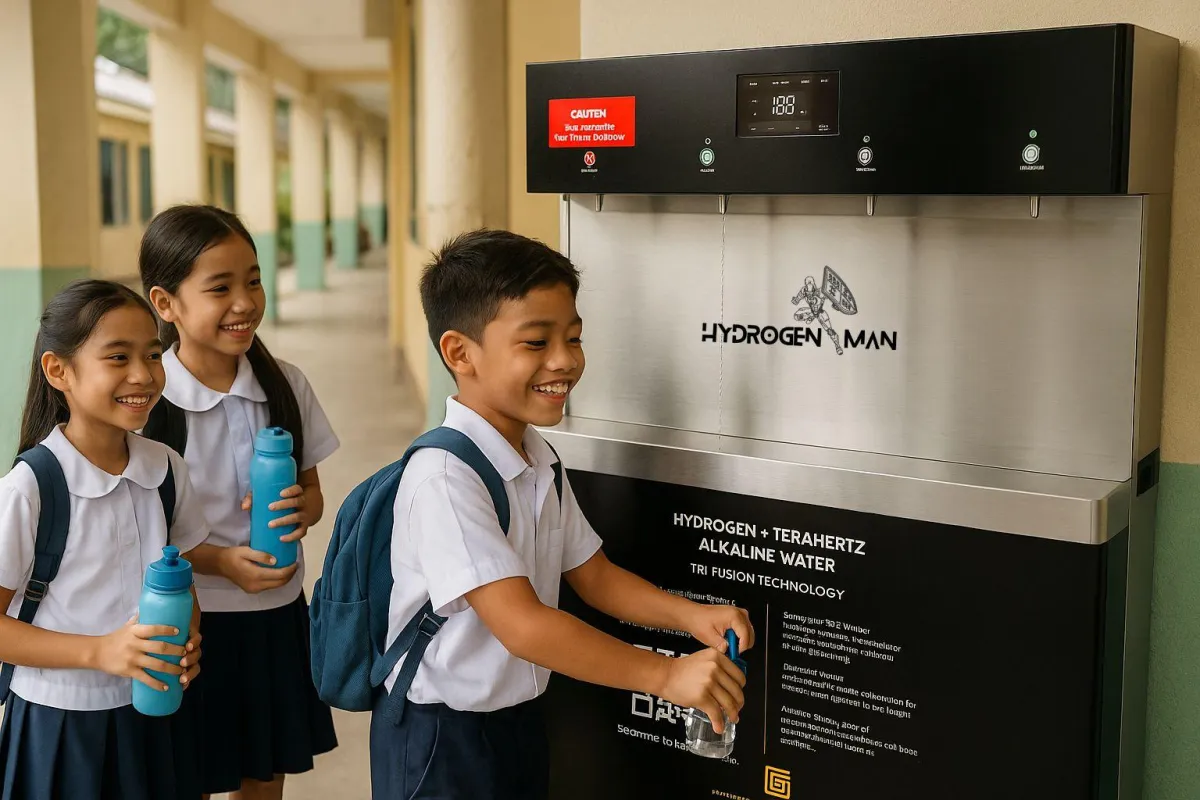
SAMPLEEEEEEE
Iloilo City, Philippines – June 16, 2025 – In a bold stride toward integrating science, health, and education, Lancaster Group of Companies—best known for pioneering hydrogen-driven wellness solutions—has launched a philanthropic campaign to support hydrogen wellness initiatives in Philippine schools. This initiative aims to bring cutting‑edge hydrogen-infused technologies directly into student lives, promoting holistic well-being, innovation, and a forward-thinking school environment.

Entering Classrooms with Hydrogen Power
Lancaster Group, celebrated for introducing hydrogen-enriched water bottles, facial masks, and mist sprayers to the Filipino market, is now partnering with local educational institutions. The company will provide schools with hydrogen water dispenser units alongside educational modules that teach students about molecular hydrogen’s connection to health, science, and sustainable technologies.
.
A Strategic Alignment with Education Goals
Dr. Maria Santos, Vice President for Corporate Social Responsibility (CSR) at Lancaster Group, explained the campaign’s educational value: “Our goal is to empower children with both knowledge and practice—teaching the science behind hydrogen while giving them healthy hydration options.” She added that hydrogen technologies introduced in schools also offer a hands-on STEM experience, aligning with nationwide efforts to boost interest in science, technology, engineering, and mathematics.
School administrators are enthusiastic. “This isn't just about tapping water—it’s about tangible science, health, and inspiring future careers in renewable and wellness innovation,” said one principal. The hydrogen dispensers will be installed in canteens and activity hubs, supported by teacher workshops and interactive student contests that foster experimentation and learning.
Pilot Launch in Iloilo
The initial pilot program will launch in Iloilo City, where Lancaster Group has established strong local ties. Three large public schools, including Iloilo National High School, will receive fully equipped hydrogen water stations. Accompanying these are educational toolkits—complete with modules on hydrogen chemistry, environmental impact, and hands-on STEM experiments.
In one initiative, students will measure variables such as hydrogen concentration and antioxidant potential using portable test kits. This enables data collection and analysis, letting students participate in science fairs and community presentations.
Community and Health Benefits
The wellness sponsorship aims to tackle hydration and health proactively. With rising tropical temperatures in the Philippines, student dehydration and fatigue are prevalent issues. Hydrogen water may help alleviate oxidative stress and improve recovery post-physical activity, contributing to increased energy and alertness in class.
Beyond physical health, Lancaster hopes hydrogen wellness will foster community awareness about preventive health and eco-conscious technologies. Plans include distributing informational pamphlets for families and hosting school‑hosted “Hydrogen Science Day” events open to local residents.
A National Vision for Hydrogen Wellness
The pilot forms part of Lancaster Group’s broader ambition to establish hydrogen as a mainstream wellness solution in the Philippines. The company, already a leader in hydrogen-based consumer products—ranging from wine decanters to foot-soaking devices—views schools as key for broadening public understanding
“We believe education is the springboard for wider acceptance—that teaching students today builds tomorrow’s informed adopters,” said Lancaster’s CEO. The firm is in discussions with DepEd (Department of Education) to expand into more regions after monitoring pilot outcomes.
Bridging School Health Today, Shaping Innovators for Tomorrow
As installation begins this month, Iloilo students will soon “taste” the future of wellness—coupling healthier refreshment with curiosity-driven learning. Stakeholders—from students and teachers to parents—have expressed excitement at the prospect of hands-on STEM education combined with tangible health benefits.
Lancaster Group plans to publish early results, covering usage data, surveys on student energy and well-being, and qualitative feedback. Based on these insights, the program could scale to hundreds of schools nationwide by next year.
Conclusion
Lancaster Group’s hydrogen wellness sponsorship illustrates a forward‑looking model for corporate philanthropy: one that converges scientific innovation, student health, environmental stewardship, and STEM education. As hydrogen technology steps into schools, the initiative may catalyze broader acceptance of molecular hydrogen while cultivating a new generation inclined toward wellness, inquiry, and sustainable solutions.